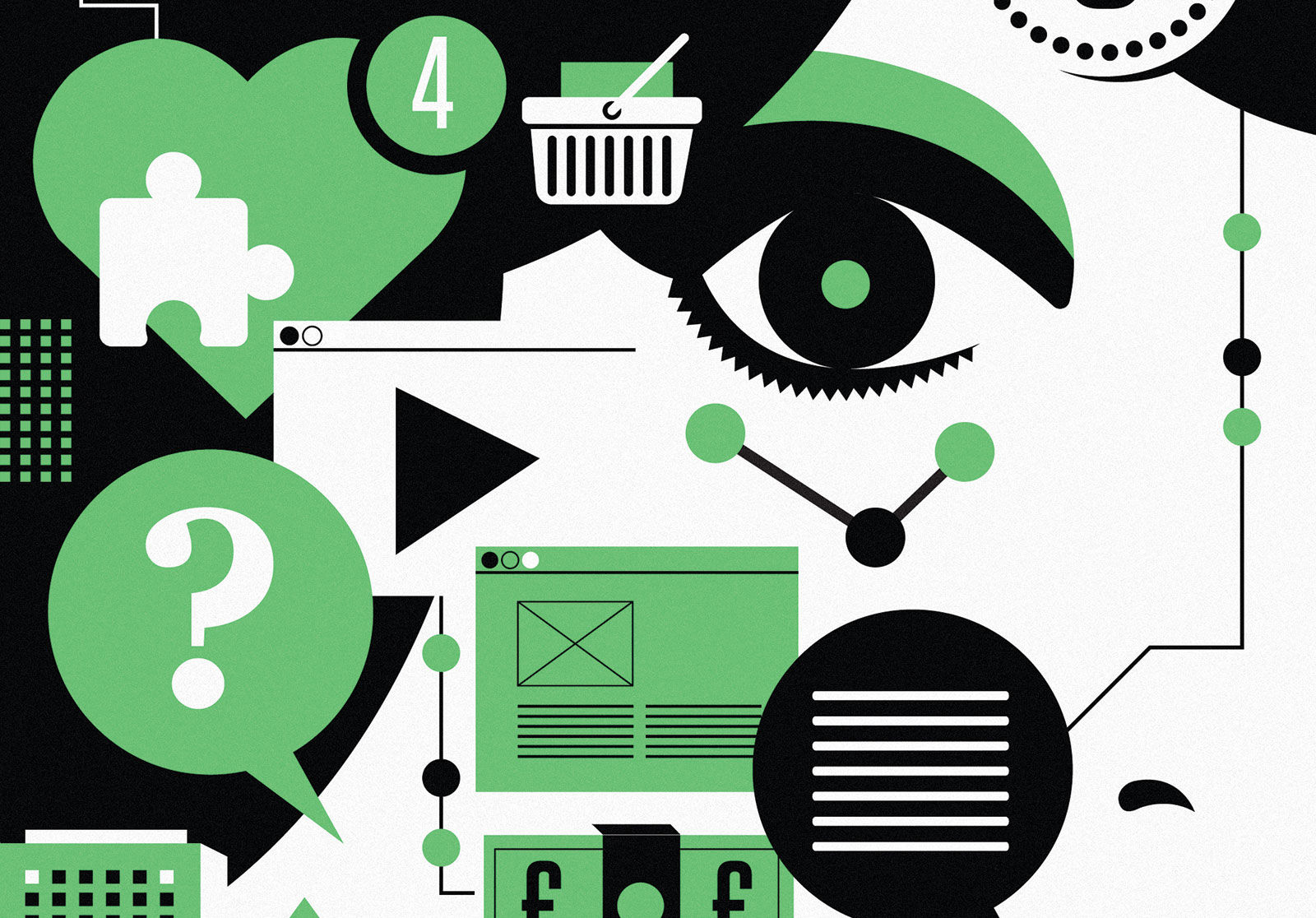
The new customer is emotionally intelligent, connected and urban. They will soon be omnipotent, says Anders Indset
The new customer wants not your Plan B. She wants your Plan A, tailor-made for her. She wants your unique selling proposition mixed with your individual selling proposition. Marketing is pointless, dead even. “Stop screaming at me!” the new customer says. “I do not care for your attention. Serve me before I realize that I need you, then you have a chance of becoming my lifelong buddy. After all I am not a piece of data. I am human. I have feelings.”
The new customer is called the Mensch. Mensch is a Yiddish word meaning a person of honour and integrity. In German, the word means simply: human. Get to know the Mensch, as she is about to become very important.
Consumers – otherwise known as humans – are the new revolutionaries. The new era will not arise from people at the top, nor from populist groups from the far right reacting to the forces of change. It will come from the grassroots: the Mensch, the emotionally intelligent consumers who exploit change. The Mensch are in a clear majority. Yet for a short time they have been pushed aside. They will grow stronger. These factors will see the Mensch soon regain power…
The Mensch lives in the city. In 2006, the world reached a tipping point as we had more than 50% of the world’s population living in urban areas. In parts of South America, urbanization has reached 75%. And countries in Europe – such as the UK, Turkey, Czech Republic, Sweden and Switzerland – are moving completely away from the identity and power of the countryside towards economies that are centralized around the city. This will eventually lead to the death of the nation state as we know it, where everything is clustered in some 750 global metropolises surrounded by partly subsidized rural areas of insignificance and economic junk space. These interconnected hubs and globally connected metropolises around the world will account for more than 90% of all economic transactions. Forget what we learned from the industrial revolution. The exponential growth of Tech 2.0 and the rise of mega companies is 50 times stronger and faster than any development in global economic history. As China is growing, the cities of the west are growing even faster – and every city is becoming more closely connected to its peers than the countryside around it.
Every Mensch will have money to spend because a citizens’ income – payments made by governments to all citizens regardless of their means and willingness to work – will be the norm. Technology will by 2060 erase 50% of the jobs we know today. On the one hand this is good news – as it frees up tremendous potential to play and create. But it also forces us to establish a global system of shared services and more equality through a basic income for everyone. Some have suggested that this universal income could be generated by a tax on robots – so those who made the machines that took the jobs pay for the unemployment they created. The first countries, such as Finland, have already started to experiment with universal basic income – soon it will be rolled out in Europe, and adapted to the world. As the gig economy takes hold, everyone will have a basic income which is augmented by working. Universal basic income will create an incentive to earn micropayment for the micro-projects that will define the economy of the future. It is the only way Europe and North America will avoid relegation to the global second division.
Your aim is to make the life of the Mensch better. Build your solutions for the Mensch, then focus on profit and return as an ancillary concern. Once you have built an ecosystem and solutions for the Mensch, explore the art of making money by offering additional services to your existing customers. You can add more value, and sell more services, once you have gained the trust of the Mensch you have just served. Where will these new services come from? Through ongoing innovation born of dedicated teams – brains trusts within companies whose job it is to solve the problems of tomorrow. Organizations will establish separate units to do the big thinking – these think tanks will create the products that make the lives of the Mensch easier. The best think tanks will solve her problems before she even realises what her problems are. Through this, companies will be flying high with the next big thing well before the last big thing dies, as are all big things do eventually.
The key to staying in business is by exploring creative solutions that lead to completely new business models and ways of generating economic value. Serve the Mensch individually, well before time and enjoy the ride! You’ll figure out how to monetize your efforts as you roll along.
originally published Dialogue Review (www.dialoguereview.com) June (Q3) Edition 2017
Illustration: Neil Stevens
 Norwegian-born occasional tech-investor based in Frankfurt, Germany, Anders Indset is founding partner of Frankfurt International Alliance (FIA) and author of Wild Knowledge: Outthink the Revolution (2017).
Norwegian-born occasional tech-investor based in Frankfurt, Germany, Anders Indset is founding partner of Frankfurt International Alliance (FIA) and author of Wild Knowledge: Outthink the Revolution (2017).

Thinkers50 Limited
The Studio
Highfield Lane
Wargrave RG10 8PZ
United Kingdom

Thinkers50 Limited
The Studio
Highfield Lane
Wargrave RG10 8PZ
United Kingdom

Thinkers50 Limited
The Studio
Highfield Lane
Wargrave RG10 8PZ
United Kingdom
| Cookie | Duration | Description |
|---|---|---|
| LANG | 9 hours | Linkedin set this cookie to set user's preferred language. |
| nsid | session | This cookie is set by the provider PayPal to enable the PayPal payment service in the website. |
| sp_landing | 1 day | The sp_landing is set by Spotify to implement audio content from Spotify on the website and also registers information on user interaction related to the audio content. |
| sp_t | 1 year | The sp_t cookie is set by Spotify to implement audio content from Spotify on the website and also registers information on user interaction related to the audio content. |
| tsrce | 3 days | PayPal sets this cookie to enable the PayPal payment service in the website. |
| x-pp-s | session | PayPal sets this cookie to process payments on the site. |
| __cf_bm | 30 minutes | This cookie, set by Cloudflare, is used to support Cloudflare Bot Management. |
| Cookie | Duration | Description |
|---|---|---|
| l7_az | 30 minutes | This cookie is necessary for the PayPal login-function on the website. |
| Cookie | Duration | Description |
|---|---|---|
| CONSENT | 2 years | YouTube sets this cookie via embedded youtube-videos and registers anonymous statistical data. |
| _ga | 2 years | The _ga cookie, installed by Google Analytics, calculates visitor, session and campaign data and also keeps track of site usage for the site's analytics report. The cookie stores information anonymously and assigns a randomly generated number to recognize unique visitors. |
| _gat_gtag_UA_10408481_1 | 1 minute | Set by Google to distinguish users. |
| _ga_ZP8HQ8RZXS | 2 years | This cookie is installed by Google Analytics. |
| _gid | 1 day | Installed by Google Analytics, _gid cookie stores information on how visitors use a website, while also creating an analytics report of the website's performance. Some of the data that are collected include the number of visitors, their source, and the pages they visit anonymously. |
| Cookie | Duration | Description |
|---|---|---|
| NID | 6 months | NID cookie, set by Google, is used for advertising purposes; to limit the number of times the user sees an ad, to mute unwanted ads, and to measure the effectiveness of ads. |
| test_cookie | 15 minutes | The test_cookie is set by doubleclick.net and is used to determine if the user's browser supports cookies. |
| VISITOR_INFO1_LIVE | 5 months 27 days | A cookie set by YouTube to measure bandwidth that determines whether the user gets the new or old player interface. |
| YSC | session | YSC cookie is set by Youtube and is used to track the views of embedded videos on Youtube pages. |
| yt-remote-connected-devices | never | YouTube sets this cookie to store the video preferences of the user using embedded YouTube video. |
| yt-remote-device-id | never | YouTube sets this cookie to store the video preferences of the user using embedded YouTube video. |
| yt.innertube::nextId | never | This cookie, set by YouTube, registers a unique ID to store data on what videos from YouTube the user has seen. |
| yt.innertube::requests | never | This cookie, set by YouTube, registers a unique ID to store data on what videos from YouTube the user has seen. |
| Cookie | Duration | Description |
|---|---|---|
| DEVICE_INFO | 5 months 27 days | No description |
| loglevel | never | No description available. |
| m | 2 years | No description available. |
Thinkers50 Limited has updated its Privacy Policy on 28 March 2024 with several amendments and additions to the previous version, to fully incorporate to the text information required by current applicable date protection regulation. Processing of the personal data of Thinkers50’s customers, potential customers and other stakeholders has not been changed essentially, but the texts have been clarified and amended to give more detailed information of the processing activities.